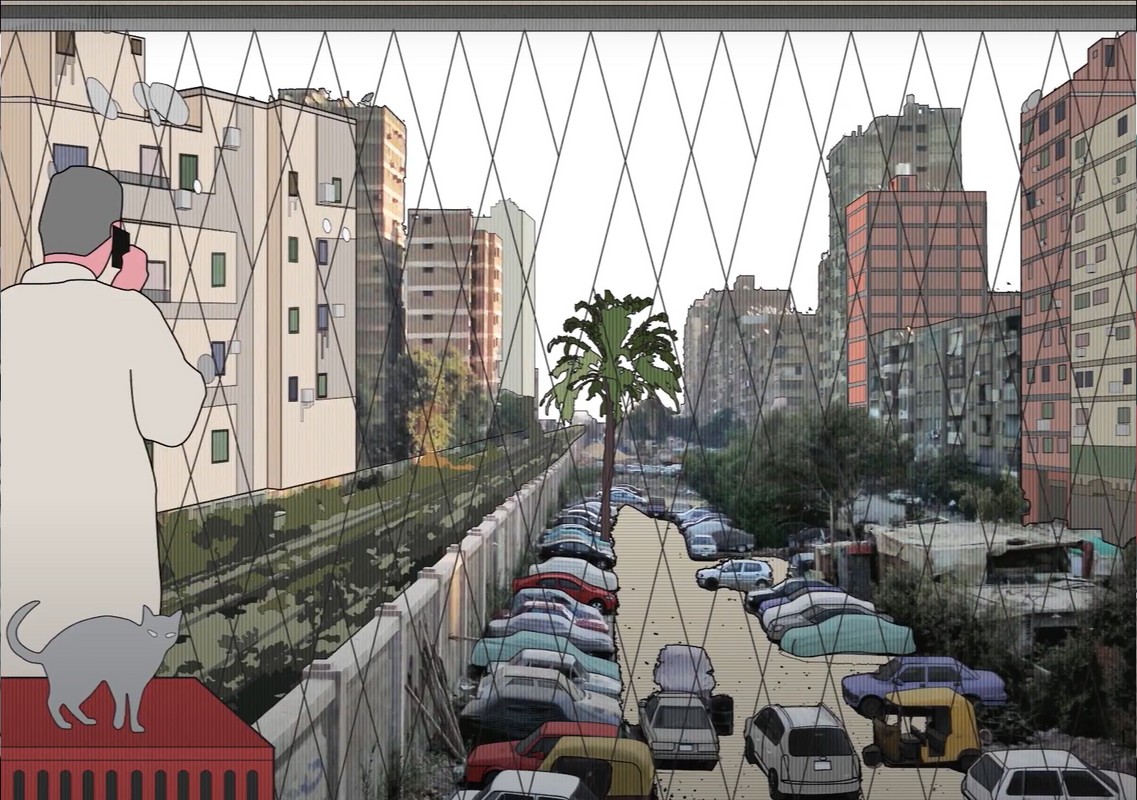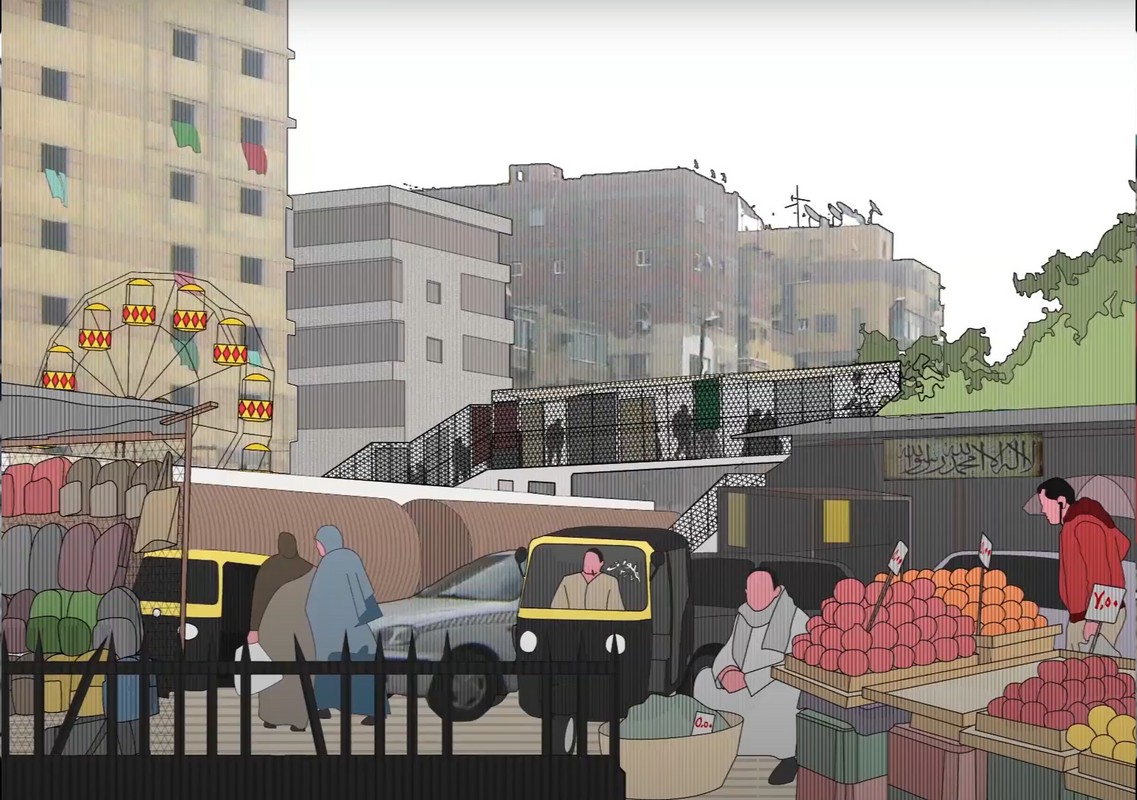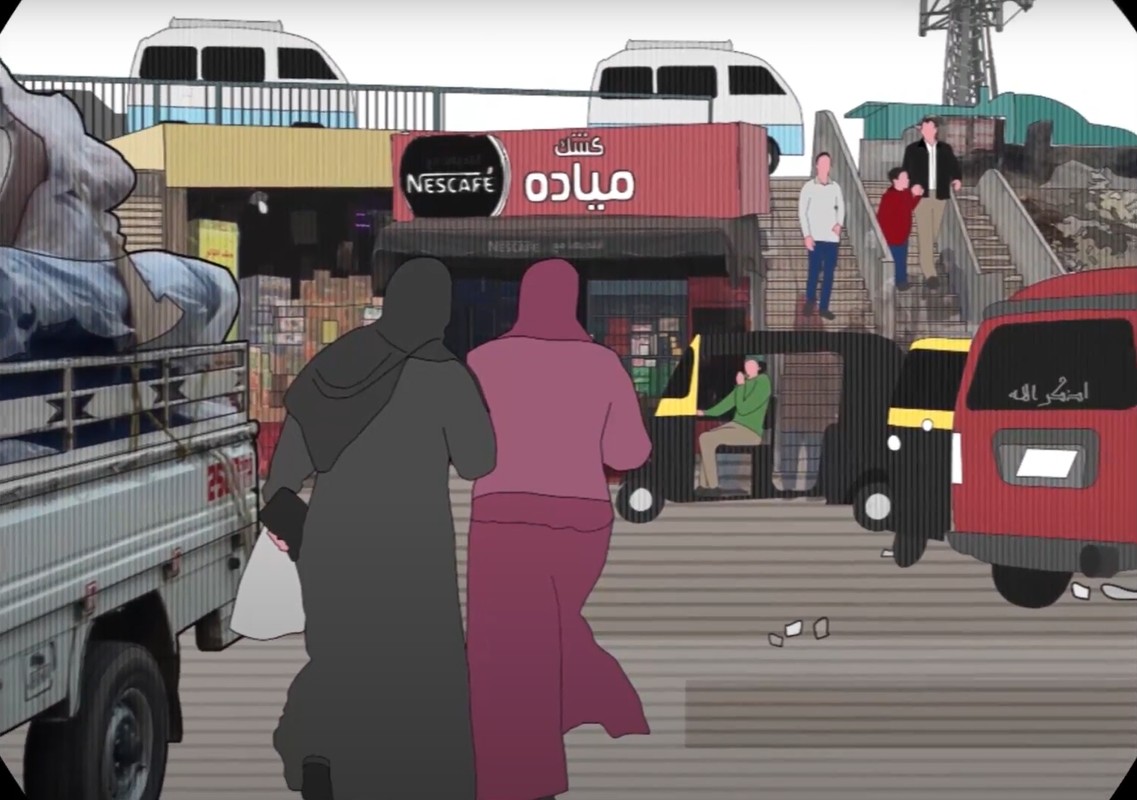Objects in the Mirror are Closer than They Appear
CLUSTER, 2018
Objects in the Mirror are Closer than They Appear is an animation by CLUSTER that uses visual media to illustrate the dynamics and movement at the interfaces that connect formal and informal areas. Informality is one of Cairo's defining features, with blurred distinctions between formal systems and informal practices, both politico-economically and spatially. The physical manifestations of this dichotomy are often contested sites of competing interests that display the extremes of urban inequality. However, it is also in their fluid conditions that resilient, sustainable and practical solutions can be most productively explored. As the excluded communities reclaim their rights to services by finding makeshift solutions, these interfaces develop beyond spatial barriers symbolic of structural division, and may present opportunities for connection and reclamation of agency. The animation, and the research from which it developed, seek to challenge the perceived distinction, and divisions, between one area and the other, showing the ways in which they are interconnected.
Objects in the Mirror are Closer than They Appear depicts a journey from the Mutamidiyah informal neighborhood to Tahrir Square, and the multiple modes of transportation typically required in the daily commute from informal peri-urban areas towards the center involves. The journey exemplifies the negative impacts of current policies that marginalize informal areas, excluding them from the benefits of formal services, such as metro stations, amongst others. This animation illustrates the common landscapes between the formal and informal and challenges the duality between formal and informal areas, as upheld by public perception and state policies. This animation is part of CLUSTER?s research project Formal-Informal Interface: A Comparative Research in Three Egyptian Cities (2018), supported by the African Urban Research Initiative (AURI): Fostering a Comparative Research Agenda in African Cities.
Through the research, CLUSTER comparatively investigated the relevance of the formal-informal interface in Cairo, Alexandria and Minya, examining the conditions of borders, crossings, activities and flows that connect these areas rather than treating them as two discrete entities, thus challenging the perceived dichotomy between informal and formal areas. While unequal distribution of resources defines the formal-informal border, informal communities have demonstrated an ability to transcend a condition of marginality, and access resources that were planned to bypass their neighborhoods. Individuals cross from the informal into the formal areas, either to access education and health services or for employment in the formal market. However, these crossings are also not limited to these specific instances: informality has demonstrated an ability to adapt to existing conditions and overlap creatively with the formal city, as illustrated by CLUSTER?s previous research on street vendors (Nagati and Stryker, Street Vendors and the Contestation of Public Space, 2017). As such, whilst research on informality has generally overlooked the relationship between informal and formal zones, Objects in the Mirror are Closer than They Appear, and its corresponding research, highlight the interface between formal and informal as a permeable one, grounded in the recognition of the adaptable nature of informality and the possibility it presents in informing socially just urban policy.
Links
Authors
Project Partner
Funding Partner: African Urban Research Initiative (AURI) Lead Researchers: Hanaa Gad Mahmoud Tamer Aly Marina El-Najjar Research Team: Martina AbuAlam Ahmad Salah Mayar El-Sayed Amin El-Didi Katrine Mandrup Bach Rana El Rashidy Rana Gharib Reem Khorshid Nour Tarek Mariam Mahdally Farah Wahby Raghda Hatem Lead Graphic Designer: Mayar Salama Video Concept and Curation: Omar Nagati Amin El-Didi Lead Animation and Editing team: Amin El-Didi Mayar El-Sayed Additional support: Hana Shaltout Martina AbuAlam Mayar Salama Additional Graphic Support: Mayar El-Sayed Martina AbuAlam Amin El-Didi Ahmed Morsi Reem El Attar Special thanks to our Alexandria partner: Dr. Heba Abouelfadl Special thanks to our al-Minya partner: Doaa Abdelhady



